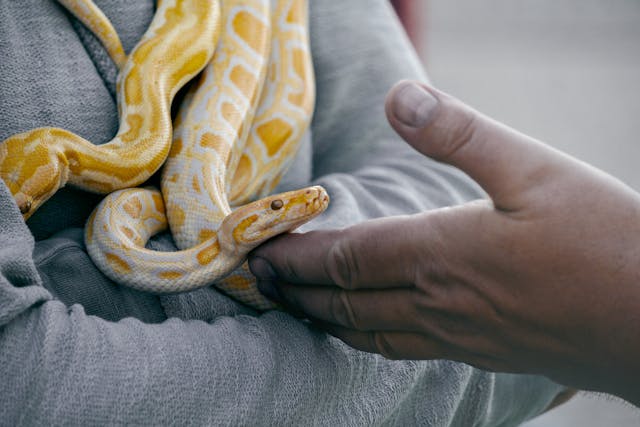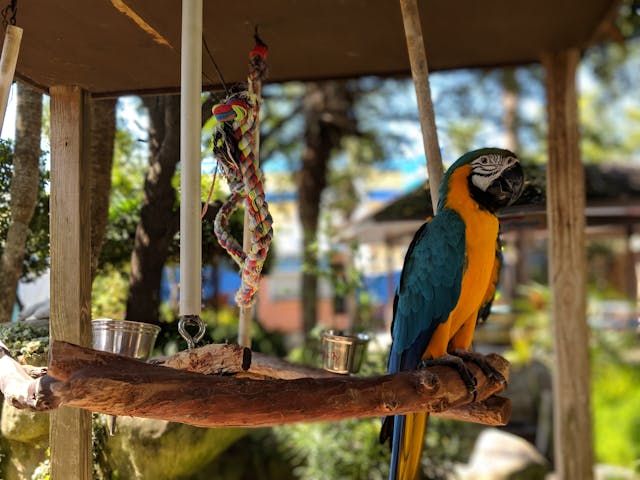Exotic Pets 101: What You Need to Know Before Bringing One Home
Exotic pets—ranging from reptiles and amphibians to small mammals and birds—offer a unique alternative to traditional pets like cats and dogs. However, owning an exotic pet comes with specific responsibilities, legal considerations, and care requirements. If you’re thinking about bringing an exotic animal into your home, here’s what you need to know to ensure a responsible and informed decision.

Understanding What Qualifies as an Exotic Pet
An exotic pet is any animal that is not commonly domesticated or found in typical households. Some examples include:
-
Reptiles: Snakes, lizards (such as bearded dragons and geckos), turtles
-
Amphibians: Frogs, salamanders, axolotls
-
Mammals: Hedgehogs, sugar gliders, ferrets, chinchillas
-
Birds: Parrots, macaws, cockatoos
-
Aquatic Creatures: Exotic fish, jellyfish, octopuses
-
Invertebrates: Tarantulas, scorpions, giant millipedes
Each of these animals has unique needs, making research crucial before making a commitment.
Legal Considerations and Ethical Concerns
Check Local Laws
Exotic pet ownership is regulated in many areas. Some species are banned outright, while others require permits. Research your state, county, or country’s regulations before acquiring an exotic pet.
Ethical and Conservation Issues
Many exotic animals are taken from the wild, leading to habitat destruction and population decline. If you’re getting an exotic pet, ensure it comes from a responsible, captive-bred source rather than illegal wildlife trade.
Special Care Requirements for Exotic Pets
Habitat and Enclosure Needs
-
Many exotic pets require specialized enclosures that mimic their natural environment, including temperature, humidity, and lighting control.
-
For example, reptiles like bearded dragons need UVB lighting, while tropical birds require ample space to fly.
Dietary Needs
-
Exotic pets often have specific diets that can be difficult to replicate.
-
Some reptiles require live food (e.g., insects, mice), while sugar gliders need a mix of fruits, proteins, and supplements.
Veterinary Care Availability
-
Not all veterinarians are experienced in treating exotic pets. Ensure you have access to an exotic pet specialist before bringing one home.
-
Regular health check-ups are crucial, as exotic animals may hide signs of illness.
Longevity and Commitment
-
Some exotic pets have exceptionally long lifespans.
-
Parrots can live 50+ years, while tortoises may outlive their owners.
-
Be prepared for a lifelong commitment or have a plan for their care in case you can no longer look after them.

Pros and Cons of Owning an Exotic Pet
Pros:
-
Unique and fascinating companions
-
Can be low-maintenance compared to traditional pets (e.g., reptiles don’t require daily walks)
-
Less common allergens (reptiles and amphibians are hypoallergenic)
-
Some species require less space than a dog or cat
Cons:
-
Specialized care requirements and equipment costs
-
Limited access to experienced veterinarians
-
Legal restrictions on ownership
-
Ethical concerns regarding exotic pet trade
-
Potentially dangerous or unpredictable behavior
Is an Exotic Pet Right for You?
Before making a decision, ask yourself:
-
Can I meet the pet’s habitat, dietary, and medical needs?
-
Do I have access to an exotic pet veterinarian?
-
Is this pet legal in my area?
-
Am I prepared for a long-term commitment?
If you’re willing to put in the research, care, and responsibility, an exotic pet can be a rewarding companion. However, if you have doubts, consider alternative pets that may better fit your lifestyle.
Would you like recommendations on beginner-friendly exotic pets?












